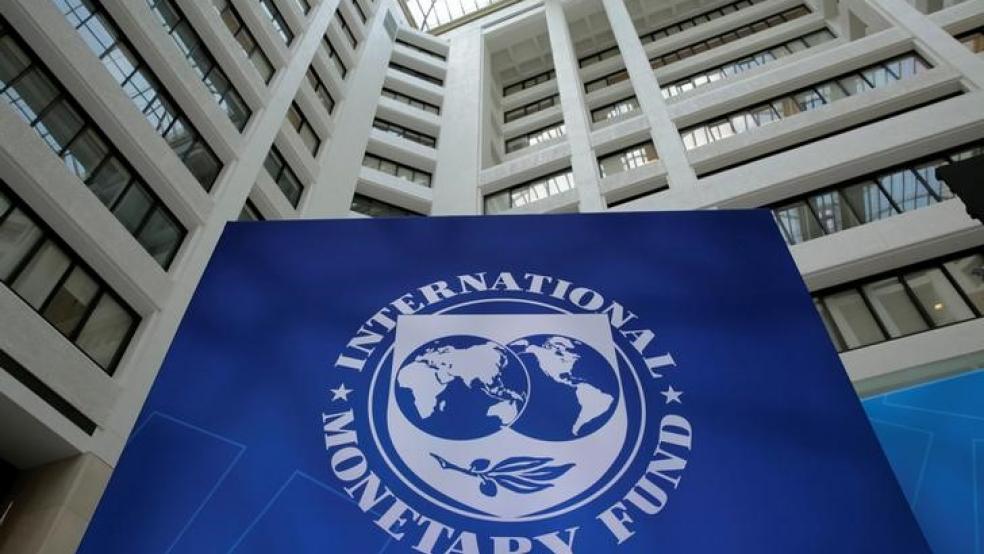WASHINGTON (Reuters) - World financial leaders sounded a sour note about the global economy on Thursday, pointing to Britain's possible exit from the European Union as a serious threat alongside rising anti-trade sentiment and China's bumpy growth path.
Concern that British voters are edging closer to leaving the EU in a June 23 referendum has spooked finance ministers, central bankers and other officials gathered here for the International Monetary Fund and World Bank spring meetings.IMF Managing Director Christine Lagarde signaled policymakers' heightened fears that a "Brexit" could derail Europe's shaky economic recovery and reverberate further afield."We have clearly elevated 'Brexit' as one of the serious downside risks on the horizon of global growth," Lagarde said in a press conference just two days after the IMF cut its 2016 global growth forecasts for the fourth time in less than a year.Lagarde, who said it was her personal hope that Britain remained in the EU, predicted a divorce would lead to years of financial uncertainty.EU Economic and Monetary Affairs Commissioner Pierre Moscovici chimed in at a separate event, describing the political repercussions of a British vote to leave the EU as "very bad news."Their comments followed the Bank of England's clearest warning yet that Britain's economy would likely suffer and sterling would slide in the event that voters reject remaining in the EU.Moscovici added that the near-term European growth outlook was already worsening."Overall, we now expect GDP growth in the first quarter of this year to have been positive but slower than we had expected," Moscovici said in a speech at the Peterson Institute for International Economics. CHINA'S SHADOWLagarde also said the IMF was "concerned" about China following through on the restructuring of its struggling state-owned enterprises as the country shifts to slower, more sustainable growth driven by consumer spending.China's slowdown from double-digit GDP growth a few years ago to the 6.5 percent growth forecast by the IMF this year has reduced demand for commodities and components worldwide, causing spillovers to emerging markets and advanced economies alike.Lagarde added that a decision by Chinese authorities to eliminate some export subsidies to resolve a U.S. trade dispute was a step in the right direction.She also unveiled the IMF's policy agenda, which pledged to provide more resources to help the Fund's 188 member countries boost growth and protect those vulnerable to a global slowdown and low commodity prices.The IMF also vowed to ensure it had adequate funds to back its lending programs, and examine reforms including strengthening its lending toolkit and ties to regional lending institutions.But differences over the European Central Bank's negative interest rate policy continued as Jeroen Dijsselbloem, who chairs the group of European finance ministers, warned that the measure was reaching its limits."Expansionary monetary policy... supports the economy in the short run, but the limitations are imminent and negative side-effects are becoming stronger," Dijsselbloem said in a speech to the Peterson Institute.Negotiations over Greece's bailout program, officially on hold during the Washington meetings, also bubbled to the surface, with Lagarde promising the IMF would not walk away from the lending 'troika' that also includes the ECB and European Commission. Lagarde has been pushing the idea of extending debt relief to Greece's government in exchange for fiscal reductions.Argentine Finance Minister Alfonso Prat-Gay presented what may have been the one bright bit of news on Thursday, saying the country's impending debt issue, its first in more than a decade, was seeing "awesome" demand from investors.Argentina's new right-of-center government is pursuing a host of business-friendly economic reforms as it attempts to attract investors and reestablish itself in international markets.Prat-Gay added that the government is making the curbing of the country's double-digit inflation rate a top priority. (Reporting by David Lawder; Additional reporting by Jason Lange, Daniel Bases, Balazs Koranyi, Jan Strupczewski, Lindsay Dunsmuir, Leika Kihara, David Chance and Gernot Heller; Editing by Paul Simao)Global officials fret as storm clouds gather over world economy

Yuri Gripas



